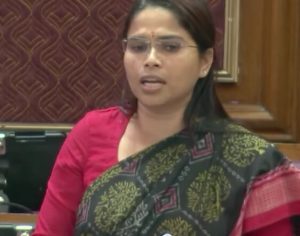Thanks to Modi move, Pak has only China’s shoulder to cry on

IANS Graphics
IANS Graphics
New Delhi (3 MIN READ): Barring good friend China, Pakistan has so far failed in its efforts to get global leaders to pass any adverse remark against India over revoking Jammu and Kashmir’s special status. And this is despite Islamabad going on a diplomatic overdrive, with Prime Minister Imran Khan personally dialling leaders of many countries, including Muslim-majority states.
Since he first came to power in 2014, Prime Minister Narendra Modi has personally invested a major chunk of his time in building and strengthening foreign relations, and especially with the Gulf, and the effort has paid off.
In a big snub to Pakistan, even the United Arab Emirates, an important member of the Organisation of Islamic Cooperation, has backed India, saying India’s move on Jammu and Kashmir was its internal matter.
Even Saudi Crown Prince Mohammed bin Salman did not say anything when Imran called him up to complain, nor did Malaysia’s Mahathir Mohammed, or Turkey’s Recep Tayyip Erdogan.
Pakistan Foreign Minister Shah Mahmood Qureshi went hotfooting to Jeddah to get the OIC Kashmir contact group to convene an emergency meeting. The OIC Kashmir group, which always backs Pakistan on Kashmir, has termed India’s move illegal. India has been snubbing the OIC’s regular statements on Kashmir.
Prime Minister Modi’s outreach to the Gulf, especially Saudi Arabia and the United Arab Emirates, two Persian Gulf countries that did not receive the attention they deserved earlier, has borne fruit.
Plus Modi’s massive re-election victory and India’s economic and social stability are major factors in the countries deciding to mind their own business, and rather look at the bright financial prospects of maintaining good ties with India.
Thanks to the Modi government’s “Look West” policy, to focus on the Middle East, the Gulf has become an integral part of India’s ‘extended neighbourhood’, not just due to its geographical proximity and its economic ties, but the Gulf states also harbour the largest Indian expatriate community — of an estimated 7.6 million. Around 2.8 million Indian nationals live and work in Saudi Arabia, and 2.6 million in the UAE.
What Pakistan has failed to realise is that wealthy Arab states would prefer to have a stake in New Delhi’s success story than back debt-stricken Islamabad in its complaint against India.
The depth of Modi’s outreach can be gauged from the fact that the UAE conferred upon him the Zayed Medal, the highest decoration awarded to kings, presidents and heads of states, in April this year. The honour was conferred on him in appreciation for Modi’s role in consolidating the long-standing friendship and joint strategic cooperation between the two countries.
In 2016, Modi was conferred with Saudi Arabia’s highest civilian honour – the King Abdulaziz Sash- by King Salman bin Abdulaziz at the Royal Court. The award is named after Abdulaziz Al Saud, the founder of the modern Saudi state. Through building close relations with the Saudi kingdom, Modi helped loosen the earlier close Riyadh-Islamabad bonding.
During the February 2019 visit of the Saudi Crown Prince to India, right after he visited Pakistan and days after the Pulwama attack, the India-Saudi joint statement contained strong language against terrorism and condemned the Pulwama attack by name.
In a sign of the importance Riyadh gives to ties with India, the joint statement contained all the key elements against Pakistan-sponsored terrorism — like rejecting terrorism as an instrument of state policy, the dismantling of terrorism infrastructures, as well as avenues for funding of terrorists “from all territories against other states”.
Now Foreign Minister Qureshi is rushing to Islamabad’s only saviour – Beijing, which shares Pakistan’s animosity and insecurity about a rising India.
Published on: Aug 9, 2019 at 11:36 IST
IANS




